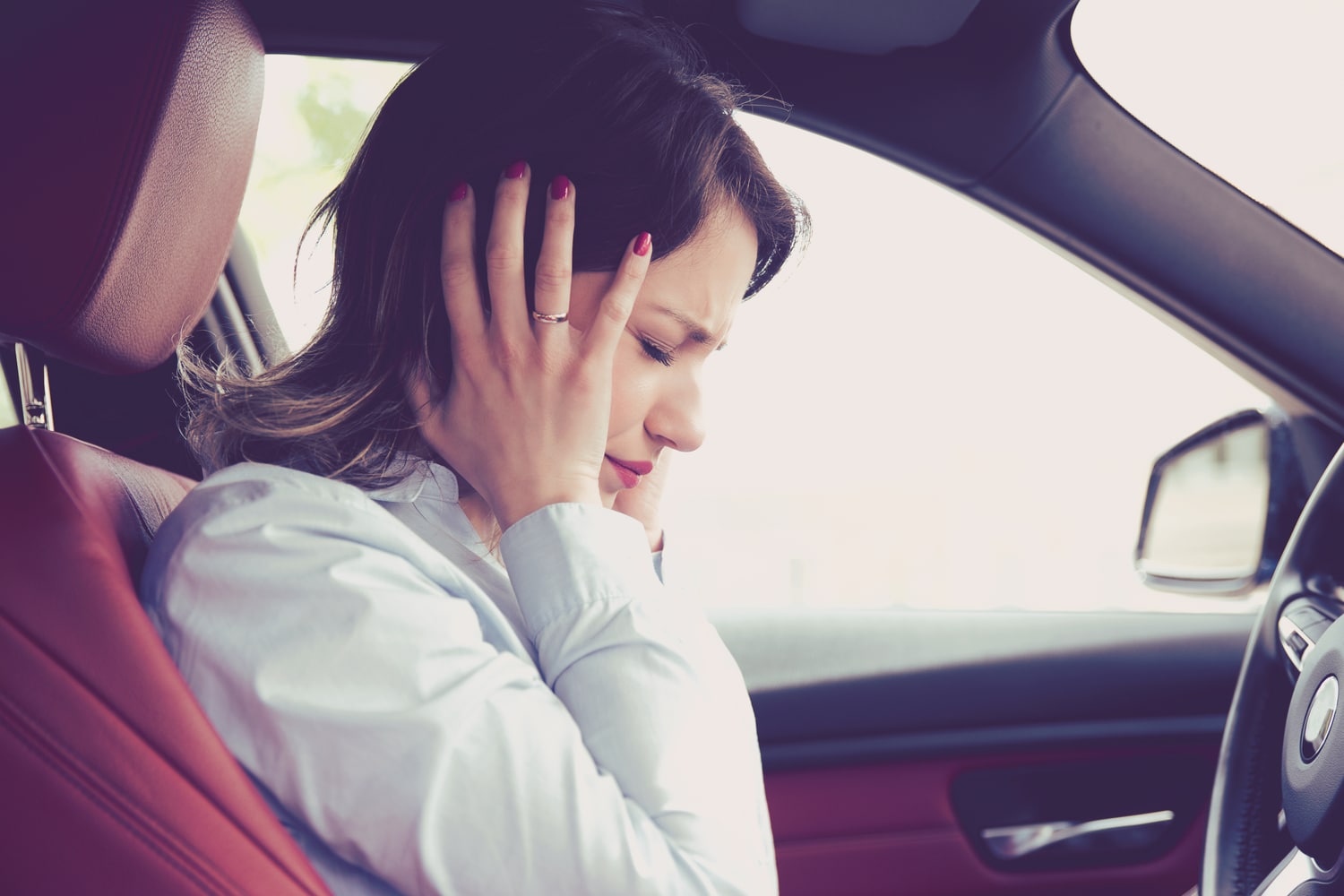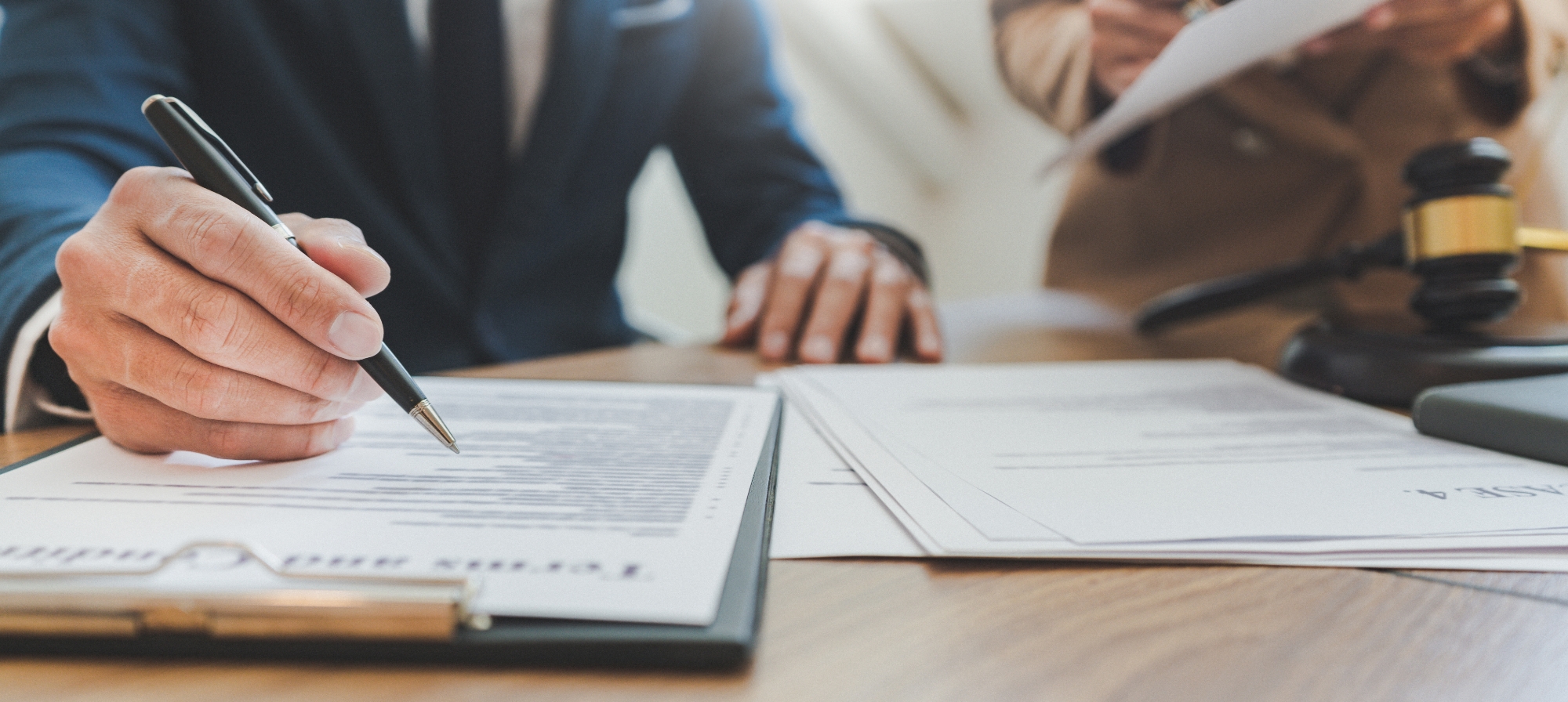You need to run an errand, but the thought of getting behind the wheel after your car accident makes you feel lightheaded and anxious. You keep telling yourself to “toughen up,” but your panic just won’t go away.
If you’re dealing with anxiety after a car wreck, you’re not alone. According to one study, about one-third of crash survivors report anxiety, phobias, or PTSD a year later. However, there are ways you can regain control and take back your life. In this blog, the injury attorneys at Crosley Law explain the basics of post-crash anxiety and suggest ways to improve your quality of life.
The Science Behind Post-Crash Anxiety
Our body’s active stress responses are what trigger our “fight, flight, or freeze” reaction to hazards. When you’re presented with a perceived threat, part of your brain (called the amygdala) starts sending out signals. These signals trigger your autonomic nervous system, changing your heart rate and blood pressure, dilating your pupils, and increasing blood flow to your hands and feet. These subconscious activities help save our lives under certain circumstances. However, our bodies can also become overreactive, causing profound issues.
Our brain’s awareness of perceived threats changes over time. When you’re involved in a traumatic crash, your mind may start to associate everyday tasks, like getting behind the wheel, making a left turn at an intersection, or passing a semi-truck, to be a potential threat — even if you’re not in immediate danger. This can trigger your fight-flight-freeze response, cause a panic attack, or lead to other anxiety symptoms.
Sometimes, your brain will readjust, and your anxiety is short-lived. In other cases, the feelings can continue and have a life-changing impact.
What’s the Difference Between PTSD and Anxiety?
In the past, doctors considered PTSD to be a type of anxiety order. Today, they now label PTSD as a “trauma and stressor-related disorder.”
Psychologists categorize anxiety and stress disorders into several different groups:
- Acute stress disorder (ASD): These intense psychological reactions to a traumatic event last for a month or less. Up to one-third of people who experience trauma report ASD symptoms. Symptoms may include:
- Feeling numb or emotionally detached
- Re-experiencing the trauma through flashbacks, nightmares, or hallucinations
- Anxiousness
- Trying to avoid things that remind you of the trauma
- Hypervigilance
- Generalized anxiety disorder (GAD): Your anxiety begins to spread, and you experience constant uneasiness, tension, irritability, sleep disturbances, and other symptoms. While a traumatic event, like a car crash, may have triggered your anxiety, your anxious feelings are no longer focused on that single incident, and you may find yourself overwhelmed with worry about unrelated issues.
- Phobia: Sometimes, people develop irrational fears of driving or getting into another crash after an accident. Other times, you may find yourself unwilling to leave your home due to agoraphobia.
- Post-traumatic stress disorder (PTSD): If your ASD symptoms last for more than 30 days, your doctors may diagnose you with post-traumatic stress disorder.
People who only suffer minor physical injuries can experience severe psychological damage in a car accident. This is especially true if you already have an underlying mental health condition.
RELATED: Don’t Ignore Your Mental Health After a Car Accident
3 Ways You Can Take Back Control After a Wreck
Anxiety and PTSD can make you feel like you’re losing control of everything. It can be hard to leave your house, run errands with your family, or even sleep at night. While there is no perfect solution, there are some ways that you can fight back.
“Anxiety and PTSD can make you feel like you’re losing control of everything. It can be hard to leave your house, run errands with your family, or even sleep at night. While there is no perfect solution, there are some ways that you can fight back.”
1. Get Mental Health Treatment
Anxiety is a natural response after a traumatic incident like a car wreck. Just like you should get your physical bumps and bruises checked out, you’ll need to treat your mental health as well. If your symptoms get worse or fail to improve, it’s best to consult professionals. If your anxiety impacts your daily life, work, or relationships, it’s time to talk to your doctor.
A mental health professional can help you learn coping mechanisms. They’ll teach you how to emotionally process the trauma, and they can also find medications that can reduce your symptoms. We cannot emphasize enough that talking to a counselor or taking anti-anxiety medication is not a sign of weakness. In fact, it takes a lot of strength and self-awareness to admit you need help controlling your body’s emotional responses! And if you’re struggling with thoughts of self-harm, please call 911 or go to the emergency room for help.
2. Build Up Your Support Network
When you’re recovering from a car crash, you need all the help you can get. You don’t need to suffer in silence. Instead, reach out to your friends and loved ones or even a survivors’ support group. That way, you’ll have people to celebrate your progress with, support you when your anxiety is overwhelming, and help you navigate post-crash life.
3. Demand Compensation for Your Injuries
While you’re recovering from your injuries, you may need to take time off work and require extensive psychotherapy. While a personal injury settlement won’t cure you, it will provide peace of mind and the resources you desperately need.
However, insurance companies and their adjusters are often skeptical about mental health injury claims, especially if your physical injuries are relatively minor or you had a pre-existing mental health issue. The company may try to reduce your claim’s value or deny it completely, arguing that your anxiety has nothing to do with the crash or that you’re exaggerating your symptoms.
An injury lawyer can help you address these arguments with medical evidence, expert witnesses, and aggressive litigation tactics. For many victims in Texas, the first step towards getting fair compensation for their injuries is a phone call to Crosley Law. We focus our practice on complex motor vehicle crashes, and we have extensive experience handling mental health injury claims. Many of our clients find that, with our help, the litigation process becomes empowering and provides them with closure.
Crosley Law: Fighting for Texas’ Car Wreck Victims
If you’re struggling with anxiety, phobia, or PTSD after a car crash, you deserve justice. At Crosley Law, we’ve built a reputation for our compassionate client experience and aggressive litigation tactics. We’ll help you understand your legal options and provide the emotional support you need. You can schedule a free consultation and case evaluation by calling us at 210-LAW-3000 | 210-529-3000 or completing our online form.
References
Beck, J. G., & Coffey, S. F. (2007). Assessment and treatment of PTSD after a motor vehicle collision: Empirical findings and clinical observations. Professional psychology, research and practice, 38(6), 629–639. https://doi.org/10.1037/0735-7028.38.6.629
Legg, T. (2018, September 29). Acute stress disorder. Healthline. Retrieved from https://www.healthline.com/health/acute-stress-disorder
The content provided here is for informational purposes only and should not be construed as legal advice on any subject.









